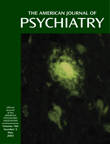The End of Modern Medicine: Biomedical Science Under a Microscope
With a medical landscape full of pronouncements as to the final stages and coming end of traditional medicine and its transformation to a corporate model that is “modern,” “scientific,” and chic, Laurence Foss calls for our evolution to a “postmodern” medicine, a vast embracing entity comprising various elements of philosophy, physics, microbiology, and ecology, among others. Medicine is called to mount the ramparts in the search for a “medical ontology” that might save the world before it is too late. This call to transformation begs the question of whether thoughts and emotions are molecules, although “thoughts and emotions, beliefs and expectations, intentions and meaning are accompanied by molecules.” Foss points to the fact that “while industrialization may be socially adaptive, to the degree that it imposes pressures qualitatively different from those characteristic of hunting-gathering, it may be biologically maladaptive.” Solutions are sought for “today’s psychoneurophilosophical burden.”
In search of this “postmodern medicine,” Foss uses a vast array of resources. Hippocrates, Galen, Descartes, Laennec, Darwin, Flexner, Watson and Crick, Delbruck, Dawkins, and Edward Wilson are all part of a vast cast of characters who contribute to the attempt to create a viable medical model whose goal is not only to provide optimal care for each person but also to save the world so these individuals have a place to exist. Philosophy easily intertwines with genetics and microbiology. “Informedical strategy” requires “mindful self-regulating behavior.” Foss decries the loss of “clinical dialogue” as well as the presence of constructs lacking a base in an evolutionary normality. There are multiple allusions to “modern” versions of the emperor’s new clothes.
Foss embraces alternative medicine but gives short shrift to spirituality, an increasing interest both in politics and in medicine. This is most interesting in view of the fact that the book has a certain prophetic ring that the world may be destroyed by fire (thirst, disease, war) if we do not drastically change our ways.
The date 1816, when René Laennec invented the stethoscope, is recalled as a pivotal moment in the evolution of modern medicine. Foss believes that from the time of this discovery, “the patient became an object, the bedside a clinic.” He believes that “mind-body/environment” evolved to “the biological and eventually the molecular and genomic medicine.” Although Foss praises these modern discoveries, he lays a compelling rationale for an encompassing integration of humanism and science across a broad latticework. The “industrialized environment” is seen as “unnatural” and “stressful.” “Fight or flight” becomes almost impossible in the face of “global warming” and “toxic by-products of world industrialization.”
Despite a plethora of references to a wide variety of scientific disciplines and discoveries, the primary focus of the book is philosophical. It is difficult to follow so many threads. Edward Wilson is the master of this type of synthesis. Points are made repeatedly, so reading is tedious. The result is still an interesting and provocative work. Medicine is indeed at a crossroads. We suffer from a surfeit of riches in terms of knowledge, a diminishing base of support, and environmental obstacles of unimaginable proportions. As with all species, we must evolve or perish. Because you can doesn’t mean you should. The book serves as a useful reference in considering our course.



